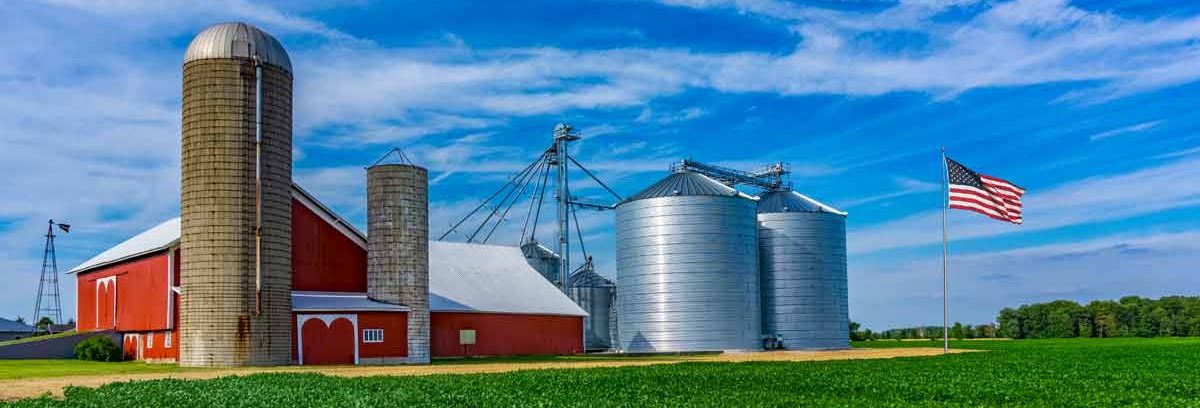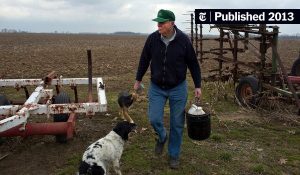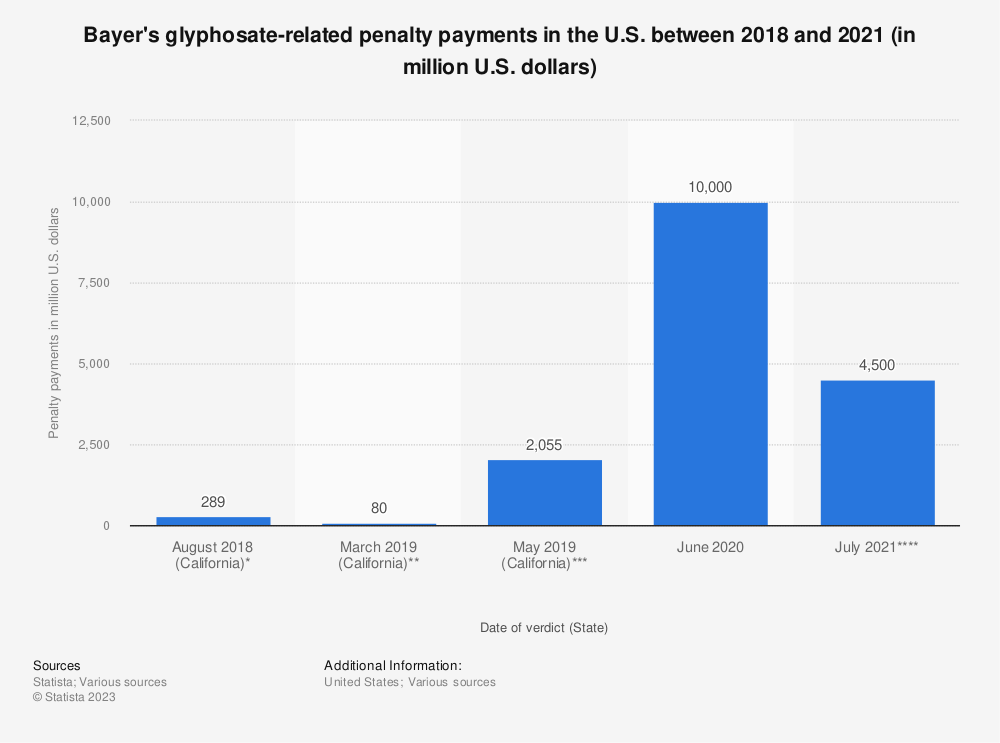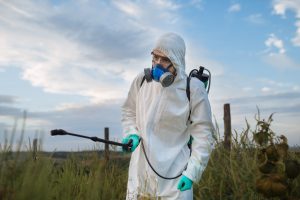3 Behind the Scenes of a Small Town Farmer
Kyla Study

For over 40 years, my grandfather and great grandparents have been grain farming to provide for our family. It has become our livelihood like many other small town families. This kind of farming affects the overall agriculture industry, as nationwide, over 90 million acres of corn were planted in 2022 (USDA, 2022). Over the recent decades, this kind of farming has become affected more and more by larger corporations. Corporations, like Monsanto, are urging farmers to use their seed and their chemical compounds with repercussions if they don’t. Often times farmers who use Monsanto’s products cannot save their extra seed and use it the next season as they risk being sued for patent infringement. In America, we think that farmers have the choice to choose how they want to farm because being in America comes with the notion of free will and freedom, but the reality is that farmers are pushed in a narrow direction outside of their control.

Less Choice in Seed Options

Over recent years, the industry of farming has been persuaded by larger corporations to convert the processes they use to farm to all be uniform. Tom Tilden, my grandfather and a former grain hauler and planter for EllMar Farms in Indiana, stated that over the years the farm has had less choice on the seeds they are able to use because the smaller seed companies are being bought out by larger corporations like Monsanto (T. Tilden, personal communication, November 4, 2023) . At the same time, even if the farmers wanted to have a choice there just are not many options because the number of companies to choose from are declining. In 2016, Monsanto owned 23 percent of the global seed market in sales. It was the largest seed company in the industry and controls the highest percentage of the market (Smaller, 2016). Owning most of the market, Monsanto was able to control the price and control where the seed was sold. Next in the market share was Beck. These two companies owned most of the share in the market so there was not much choice for farmers especially in the state of Indiana. In reality, the availability of seed producers has diminished, and it has become more profitable for farmers to use companies like Monsanto where there are incentives.
Monsanto does not allow farmers to keep their unused seed for the next harvest season. In the movie, Food Inc., there is a scene where farmers are discussing in confidence that Monsanto workers will show up to their barns and grain bins to inspect whether or not the farmer has extra seed (Kenner, 2008). In the 2013 case Monsanto v. Bowman, Monsanto sued Indiana farmer Vernon Hugh Bowman for patent infringement for using their patented genetically modified Roundup Ready soybeans for more than one growing season. Monsanto sued Indiana farmer Vernon Hugh Bowman for using their patented genetically modified Roundup Ready soybeans for more than one growing season. In this case, Monsanto stated since they have an intellectual property rights on the seeds, they can force farmers to give up their remaining seed after a growing season (JUSTIA, 2013). This forces farmers to return their unused seed to Monsanto and they do not get any money back. The supreme court voted to allow Monsanto to take back their seed if any farmer had some leftover. This caused farmers to lose money and opportunity to save some unused seed for the next season. Farmers in Food Inc., stated that they lost the ability to use some of their equipment, their seed cleaners, for the fear of being sued by Monsanto. In addition, the farmers interviewed for the film stated they had to be extremely careful in how they handled their seed so that Monsanto would not send them a notice. The Supreme Court also allowed for Monsanto to go into farmer’s fields and inspect their process if they had suspicions of seed cleaning. Monsanto, through the lawsuits, has gained control over how farmers handle their seed and what they can do with it after a growing season.

“We’re talking about power. Centralized power. It’s being used against the farmers. It’s being used against workers. It’s being used against consumers.” – Food Inc., 2008
Roundup Ready
Mr. Tilden also discussed how using the Monsanto seeds were more expensive than the smaller companies, but they were Roundup ready and the farm got a discount on Roundup chemicals if they bought the Roundup ready seeds (T. Tilden, personal communication, November 4, 2023). Monsanto patented Roundup Ready by genetically modifying its grain seeds to be resistant to its glyphosate-based herbicide, Roundup. This made it tremendously easier for farmers to feel like they were saving money because they got the chemicals cheaper if they bought the seeds. The choice for farmers became almost nonexistent because Monsanto buying both products together was a better cost of business. Farmers spend a significant amount of time planning for expenses so buying seeds and chemicals for cheaper and at the same time seems like a good idea. Monsanto knows this and quietly marks up their seed and markdown their chemicals to make it more marketable when buying a different brand could be the same price if not cheaper overall.
Monsanto started as a wholesale drug company in 1901. They started to begin manufacturing saccharin, a synthetic sweetener. In the 1990s Monsanto acquired companies like DEKALB Genetics and other biotechnology companies (Britannica, 2023). This acquisition quickly placed Monsanto as a leading crop producing company especially in the state of Indiana where many of DEKALB’s customers were located. The company was under critical light with the public when it was alleged that the company was using chemicals like glyphosate that were harmful to the environment and human health. The company was under critical light with the public when it was alleged that the company was using chemicals like glyphosate that was harmful to the environment and human health. Monsanto continued to fight the lawsuits for many years until the company as a single entity was bought out by Bayer, a German chemical company, in 2018. Bayer ended up paying out almost 10 million dollars of legal lawsuits involving glyphosate after they saw Monsanto’s value decline (Britannica, 2023). Since the lawsuits, Bayer has continued to pay Monsanto’s legal issues out to more and more farmers as they have health issues from exposure to glyphosate. Through these lawsuits, it is evident that Monsanto does not care for the customers it has but just being at the top.

One of the largest ways Americans assume that farmers have choice in is what chemicals they put on their plants. These chemicals keep insects off the plants and the weeds from taking over the crops. One of the five chemicals that Monsanto is known for formulating is glyphosate, the key ingredient in Roundup (Hay, 2023, p.486). Glyphosate is an herbicide that is used as a weed killer in many different companies, but Monsanto is the largest. Being one of the few companies that formulated glyphosate, Monsanto has the ability to have control over the price of it. Glyphosate has been known to cause respiratory issues such as such as irritation in the nose or asthma in humans who have long term exposure. In addition, glyphosate can cause nausea and vomiting with exposure to large amounts of the chemical (CDC, 2020). Monsanto seems to have a history of not caring about their products and the impact they have on the environment as they also do not include warning labels on their Roundup products.

Mr. Tilden discussed the introduction of Roundup made the decision about what chemicals to use close to nonexistent as it seemed like the cheapest option on the market so there was no reason not to use it (T. Tilden, personal communication, November 4, 2023). Monsanto appealed to the fact that some farmers do not have the funds to make decisions based on health impact. With this new compound, farmers no longer had a choice. The compound was premixed and sold in amounts that farmers did not have to think about. Monsanto knew making this chemical compound that farmers would not have a decision to make because they would not have to buy separate chemicals and have to decide which brands to even purchase. Monsanto could appeal to the convenience of a busy farmer. Without much choice in options, the small towns farmers were pushed into buying a chemical compound formulated by a big corporation that does not specialize in making the compounds safe for the environment.
Environmental Concerns
If the corporations are selling the chemicals then why wouldn’t they be safe for the environment? These Roundup chemicals are harmful to the environment, but the corporations want farmers and consumers alike to believe that their chemicals are safe. Monsanto has proven time and time again that they are not willing to abide by regulatory guidelines set by the government on the health of their products. According to Novotny, the formulations of Roundup are kept as a commercial secret and are not shared with the public. The formulations of Roundup are kept as a commercial secret and are not shared with the public. This causes concern that the farmers who are using the chemical and the individuals who are living near the fields where the product is being used. They are not being properly informed on the effects of the Roundup (Novotny, 2022). Public safety is a growing concern with companies who produce chemicals that are affecting the food we eat and the food that the animals around us eat. Monsanto has shown little care for these concerns and continues to produce Roundup that contains glyphosate and is harmful to the environment and those exposed to it. Their Roundup ready seeds are formulated to only resist their glyphosate herbicide so there is no other option for chemical use.
Throughout the farming industry, there is a lot of information not shown to consumers. From farmers not having a choice in whom to buy their seed from to being incentivized to buy Roundup ready seeds from Monsanto, they are constantly faced with a multitude of decisions the average consumer does not see. These factors are made to look like the farmers get to make the decision but in the end they are pushed and pulled in a specific way that will direct them to making a decision. In a years’ time of farming, farmers have to make the decision on what seed to use, what chemical compounds to use to keep insects and weeds at bay and what options are most cost effective for their operations. These decisions are at the heart of the business of farming. Each year these farmers’ decisions will affect their livelihood and how they are able to live their life for the next year. Choice is a freedom Americans believe most industries to have but the reality is that in the farming industry, farmers are pushed in one direction, Monsanto.
References
Britannica, T. Editors of Encyclopedia (2023, November 16). Monsanto. Encyclopedia Britannica. https://www.britannica.com/topic/Monsanto
CDC (August 2020). Glyphosate – ToxFAQs. https://wwwn.cdc.gov/tsp/ToxFAQs/ToxFAQsDetails.aspx?faqid=1489&toxid=293#:~:text=The%20International%20Agency%20for%20Research,evidence%20of%20cancer%20in%20humans.
Hay, Amy. Seed Money: Monsanto’s Past and Our Food Future. Agricultural History 1 August 2023;97 (3): 485–487. https://doi.org/10.1215/00021482-10474477
JUSTIA. Bowman v. Monsanto Co., 569 U.S. 278 (2013), https://supreme.justia.com/cases/federal/us/569/278/
Kenner, Robert. “Food, Inc..” Los Angeles, CA : Magnolia Home Entertainment, 2009, 2008.
Novotny E. (2022). Glyphosate, Roundup and the Failures of Regulatory Assessment. Toxics, 10(6),321. https://doi.org/10.3390/toxics10060321
Smaller, Carin. Bayer Tightens Control Over the World’s Food Supply. September 2016.https://www.iisd.org/articles/insight/bayer-tightens-control-over-worlds-food-supply#:~:text=Monsanto%20is%20the%20world’s%20largest,transforming%20the%20world’s%20food%20supply.
Statista. (January 31, 2023). Bayer’s glyphosate-related penalty payments in the U.S. between 2018and 2021 (in million U.S. dollars) [Graph]. In Statista. Retrieved December 02, 2023, fromhttps://www-statista-com.proxyiub.uits.iu.edu/statistics/1006539/bayer-glyphosate-penalty-payments/
USDA. 2022. Corn planted acreage up 6% from 2022. https://www.nass.usda.gov/Newsroom/2023/06-30-2023.php
